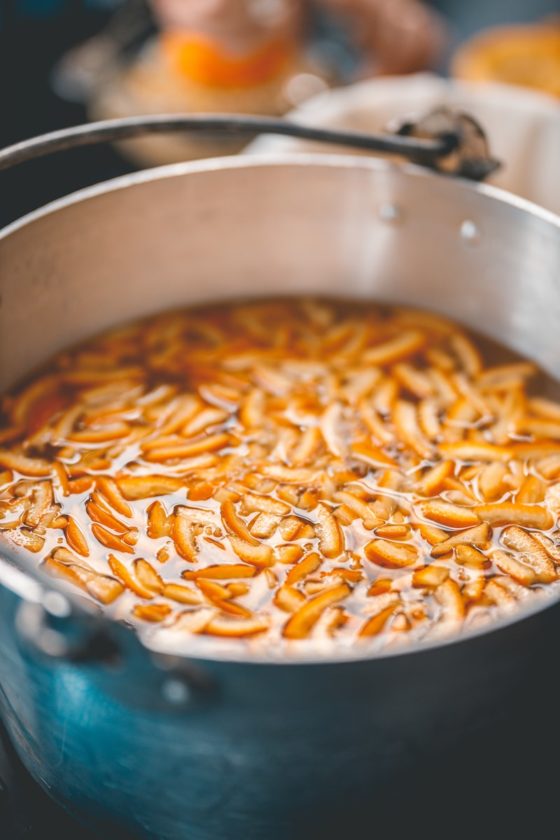Marmalade Day is one of the best days of the homeschool year.
When oranges appear in the markets in early winter everyone gets excited for marmalade day. With Paddington Bear the movie(s) in the background, we squeeze, peel, dice, slice and simmer oranges with cinnamon until the house smells like a dreamy winter wonderland and the countertops are lined with jars of citrusy goodness to see us through the year.
Sounds fun but how is that school?
For home-ed purposes, any activity that teaches knowledge or a skill – either by building on prior learning or introducing something new – is ‘school’. So in the case of Marmalade Day, ‘school’ covers
- cooking
- ingredient prep
- reading
- research
- maths
- science
Reading – The Paddington Bear books, a recipe, articles about marmalade
Research – Choosing which recipe to use, where oranges come from, the easiest way to peel oranges
Science – How does an orange tree grow? How does marmalade thicken? What reactions happen with the sugar and juice and pectin?
Maths – Scale up recipes, convert measurements, how many oranges (per recipe/per jar/); how much juice = how many oranges?

Home-ed activities like ‘Marmalade Day’ are opportunities for learners to combine skills, use skills outside the classroom either in ways that demonstrate why it is useful to learn certain subjects (convert measurements/read the recipes), or give practice at skills without it feeling like school in any way. To the homeschooler, the purpose of reading the article is because it relates to the task, not as the task – we want to make marmalade, so need to learn how to do it. Reading the recipe will tell us how.
A marmalade day lesson plan
- Read about marmalade
This years reading: The Guardian: How to Make Perfect Marmalade
The scotsman: ‘A history of Seville Orange Marmalade, including a recipe for making your own‘
Bookmarked for future years: Marmalade: A Very British Obsession
- Where/How do oranges/citrus fruit grow?
- The life cycle of an orange
- What is pectin and why is it important?
Masterclass has a good article that could be understood by younger children if read to them, or read independently by older readers, adding an extra reading lesson into the day.
If homeschoolers are reading the text aloud, scan the article (together) before reading and explain any new words that might be in the text.
If homeschoolers are reading independently, don’t pre-read the vocabulary – a lot of the time unfamiliar words can be figured out by the context of the sentence: After the homeschooler has read the text ask which words were new to them; any words they don’t point out that you thought would be new to them, ask them to explain what the word(s) means, pop-quiz style. Can they spell the new words they’ve just learnt?
- Add maths: How many kilos of oranges do you need to make (eg. 20) jars of marmalade / How many jars of jam will (20) kilos of oranges make?
- scale the recipe to number of jars/amount of oranges
- Prep ingredients – following instructions (recipe), practice knife skills
- Cook marmalade!
End the day eating marmalade on toast, reading aloud favourite Paddington stories.

ps.If you don’t have a thermometer, put a plate in the freezer and when you think it’s ready, add a blob of marmalade to the plate. If it sets on the plate and pulls back together if you run a finger through it, it’s ready.
Extension Lessons:
- Compare the film to the book
- Write a book/film review
- Make Paddington/marmalade-inspired art
- Trace on a map how citrus fruit came to the UK
- Plant an orange tree (orange trees grow well in pots)


